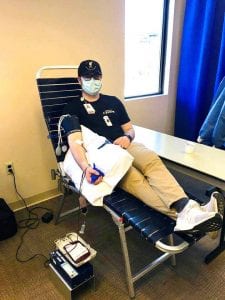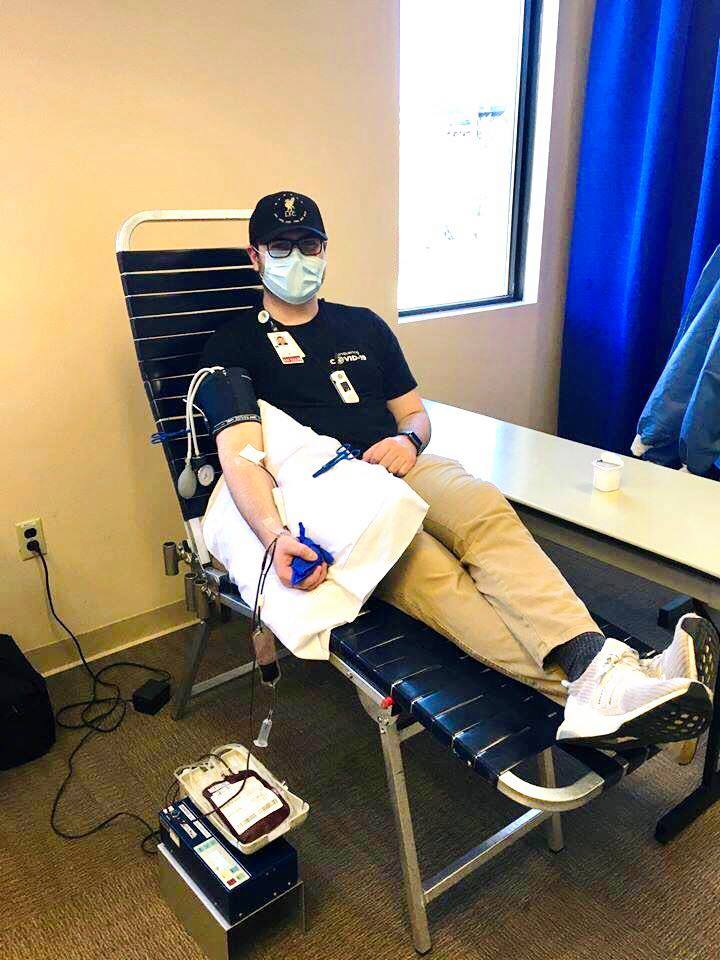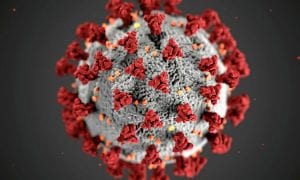GREATER WESTFIELD-Area residents of all ages who have recovered from COVID-19 are now stepping up and donating their plasma – in the hope of helping others who are still fighting the virus.
Baystate Health recently announced a new program initiative, “Hemotherapy Heroes,” that recognizes the important role these patient donors play in treatment efforts to combat the pandemic.
“Baystate is pleased to announce the initiation of a new aspect of its Blood Donor Center operations joining with hospitals nationwide in seeking plasma donations from recovered COVID-19 patients,” said Chester Andrzejewski, Ph.D., M.D., medical director of System Blood Banking and Transfusion Medicine Services at Baystate Health. “Their plasma may help save the life of someone fighting desperately to recover from this deadly novel coronavirus infection.”
Lynne O’Hearn, transfusion safety officer at Baystate Health, shared a similar sentiment.
“The desire to help others after recovering from this debilitating virus is very important to these patient donors and their compassion in the face of their recent, sometimes severe illness, is very gratifying to see,” she said.

Nickolas Vernadakis, who fully recovered from COVID-19, was one of the first plasma donors at Baystate’s Blood Donor Center in Holyoke. (BAYSTATE HEALTH PHOTO)
Nickolas Vernadakis, 25, of East Longmeadow, was among the first people to donate at Baystate’s Blood Donor Center in Holyoke. He tested positive for COVID-19 on April 6 and was out of work 25 days.
“My initial symptoms included a sore throat with lower back and leg soreness, coupled with fatigue and a fever of 100 degrees,” said Vernadakis, who works as a technician at Baystate Medical Center’s Emergency Department in Springfield. “My sore throat disappeared fairly quickly but my fever got up to 103.2.”
Vernadakis, a paintball enthusiast who also works out at the gym at least three times a week, said he was thankful he didn’t infect any friends or family members.
“My friends and family were all shocked as well as my co-workers since I was diligent and meticulous about following proper protocol procedures,” he said.
Some of those procedures that Vernadakis followed included wearing a mask when in public, changing his clothes before entering his family’s home, leaving his work uniform in the garage to ensure he didn’t bring contaminants into the house, and immediately showering.
Vernadakis isolated himself at home from the rest of his family and was appreciative of the meals left outside of his room on a TV tray.
“When I was the sickest, I would take five steps and I was winded like I had walked a mile,” he said. “We had soft isolation habits in place at home already and then when I got sick we really clamped it down.”
For area residents like Vernadakis who are now fully recovered, their plasma contains COVID-19 antibodies. Antibodies are proteins that might help fight the infection. Convalescent plasma is being investigated for the treatment of COVID-19 because there is no approved treatment for the disease, and there is information that suggests it might help some patients recover from COVID-19.
To qualify for the blood plasma program, persons must be able to meet routine blood donation eligibility requirements, must have a prior COVID-19 diagnosis documented by a laboratory test, be fully recovered for at least 28 days, and be willing to authorize Baystate Health to access their medical record for the purpose of determining eligibility for a COVID-19 convalescent plasma donation.
For persons who meet the requirements and want to donate their plasma, a donation data form can be downloaded at https://www.baystatehealth.org/services/blood-donor/covid19-plasma to begin the evaluation process.
“We are actively and aggressively furthering our convalescent plasma program to include collection by apheresis, which when available will allow for the potential of benefitting up to three people,” said Andrzejewski.
Andrzejewski added that area residents who haven’t had COVID-19 and still want to help can consider donating blood. A single whole blood donation can save up to two lives.
During the pandemic crisis, Baystate Health has relocated its blood donation operations to 361 Whitney Ave. in Holyoke.
The Blood Donor Center is open Monday and Friday from 8 a.m. – 4 p.m.; Tuesday, Wednesday, and Thursday from 12 – 8 p.m.; Saturday from 10 a.m. – 2 p.m., and Sunday from 8 a.m. – noon. Walk-ins are welcome, but appointments are given priority and can be made by calling (413) 794-4600.
Persons donating whole blood must be in good health, be at least 17 years of age, and weigh at least 110 pounds. Whole blood donors should refrain from blood donations for 14 days if they have had any symptoms of COVID-19 or have had a positive diagnostic test for COVID-19, according to the U.S. Food and Drug Administration.






